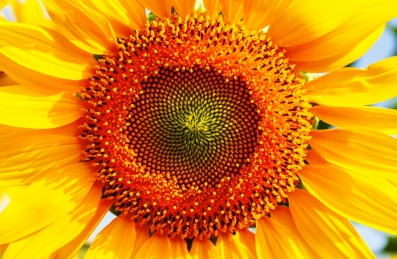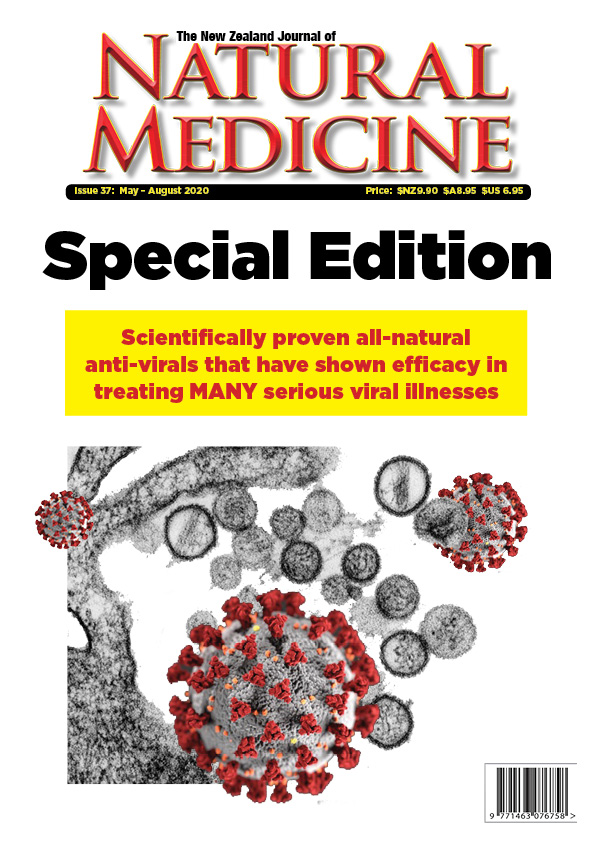Is vitamin D deficiency the reason why more people with darker skin are dying from COVID-19?
A few weeks ago I began to notice a concerning trend – health professionals in the UK were contracting COVID-19 from their patients and some were dying from the disease themselves. And in reading the early articles about the doctors and nurses who had died, I noticed that most were people who the UK public health services collectively term “BAME”- that is “Black, Asian and Minority Ethnic” – even though people who the NHS labels as “BAME” make up only 16% of employees in the NHS. (The situation there is so bad that one NHS Trust is prioritising scarce PPE to workers from these ethnic groups. See: https://www.dailymail.co.uk/news/article-8261459/Somerset-NHS-Trust-prioritise-black-ethnic-minority-staff-facemasks.html)
The UK is renowned worldwide for its bad weather and lack of sunshine – even during summer. People who have darker skin are more likely to be severely vitamin D deficient than people who have fair skin because more sunshine exposure is needed for adequate vitamin D synthesis in people who have darker skin. I began to wonder whether low vitamin D levels could have been a factor in the disproportionately high death rate in ethnic minority medical staff in the NHS.
A few weeks later, more information is beginning to be published that supports the hypothesis that vitamin D deficiency could be contributing to higher mortality in COVID-19.
A letter to the BMJ states that six of the first fifteen deaths from COVID-19 in Stockholm County, Sweden were those of Somali immigrants. The author’s state: “Considering that only 0.84% of the Stockholm County population was born in Somalia (n=8,178 by December 2019) this is an astonishing high rate.” They note that while differences in living conditions might play a role, two studies of Somali women in Sweden had shown very low vitamin D levels. (https://www.bmj.com/content/368/bmj.m1101/rr-10)
Italy has also been one of the parts of the world that have been hit hard with COVID-19 deaths and according to this piece of research, vitamin D deficiency could be contributing to mortality there, as well as in Spain and Switzerland.
“The Seneca study showed a mean serum vitamin D of 26nmol/L in Spain, 28 nmol/L in Italy and 45 nmol/L in the Nordic countries, in older people [3]. Severe deficiency is defined as a serum 25(OH)D lower than 30nmol/L [3]. In Switzerland, mean vitamin D levels are 23(nmol/L) in nursing homes and in Italy 76% of women over 70 years of age have been found to have circulating levels below 30nmol/L [3]. These are countries with high number of cases of COVID–19 and the aging people is the group with the highest risk for morbidity and mortality with SARS-Cov2.”
The authors’ conclusion “…we found significant relationships between vitamin D levels and the number COVID–19 cases and especially the mortality caused by this infection. The most vulnerable group of population for COVID–19 is also the one that has the most deficit in Vitamin D.
“Vitamin D has already been shown to protect against acute respiratory infections and it was shown to be safe. We believe, that we can advise Vitamin D supplementation to protect against COVID–19 infection.” (https://www.researchsquare.com/article/rs-21211/v1 – Emphasis added)
And just over this past weekend, one of our readers sent me a link to an article which helped me find this full text paper – which has not yet been peer reviewed: https://www.medrxiv.org/content/10.1101/2020.04.08.20058578v3.
The paper advances the hypothesis that adequate vitamin D levels can help to regulate cytokine levels and therefore prevent the immune system from overreacting to the SARS-CoV-2 – the virus associated with COVID-19 disease. (Many patients who die from COVID-19 infections die because of what is known as a “cytokine storm” which can cause massive inflammation of the lungs and respiratory distress.)
It is interesting to note that vitamin D is not the only nutrient to help reduce the risk of a cytokine storm – one of the rationales for the use of intravenous vitamin C in the treatment of COVID-19 is that it, too, can help prevent or treat a cytokine storm. http://www.orthomolecular.org/resources/omns/v16n11.shtml
An article that cites more evidence in favour of vitamin D being helpful in the ere of COVID-19 was recently published on the website of Children’s Health Defense at the following link: https://childrenshealthdefense.org/news/vitamin-d-deficiency-is-associated-with-covid-19-severity-and-mortality/
The sunshine vitamin
Sunshine is the major source of vitamin D for most people. Given that New Zealand has just had a very fine summer and autumn, many people will have good vitamin D status at the moment, if their working hours have allowed them to spend some time outside during the day with some bare skin (not smothered with sunscreen) exposed to the sun.
However, people who take medications that necessitate that they avoid sunshine (due to photosensitivity), people who cover all their skin with clothing for religious reasons, and elderly people (who have less ability to synthesise vitamin D from exposure to sunshine) may already be vitamin D deficient even at this time of year.
The following vitamin D wiki entry provides some informative graphics that illustrate how much time in the sun is necessary to get a useful level of vitamin D: https://vitamindwiki.com/No+%E2%80%93+10+minutes+per+day+of+sun-UVB+is+NOT+enough (NB: In the second graphic that shows the effects of latitude, Seattle (47.6 degrees latitude) is similar to Dunedin (45.8 degrees latitude) and San Francisco (37.8 latitude degrees) is similar to Auckland (at 36.8 degrees latitude).)
For people who cannot get enough vitamin D through sunshine, vitamin D is available over the counter at health food shops and pharmacies – and high dose vitamin D is also available by prescription in NZ. (NB: Prescription vitamin D comes in tablets that resemble mini “smarties” type lollies and does not come in childproof packaging. Please keep these out of reach of children as too much vitamin D can be toxic.)
Blood tests for vitamin D levels are available but at GP level they are not funded in NZ so it currently costs about $70 to get this test done.
A clinical trial in China is already underway to assess whether vitamin D levels had an impact on COVID-19 patients’ survival.
In the meantime, one group of researchers is suggesting vitamin D supplementation as a sensible strategy to help reduce the risk of COVID-19 – and that higher doses of vitamin D may be helpful in the treatment of the disease. https://www.ncbi.nlm.nih.gov/pubmed/32252338

Thank you to the portfolio of “start08” and www.freedigitalphotos.net for the use of this beautiful photo.
Editor’s note: One other possible reason why there are reports of higher death rates from COVID-19 among “BAME” healthcare staff in the UK and also among African Americans in the US may be the significantly higher prevalence of the genetic condition glucose-6-phosphate dehydrogenase (G6PD) deficiency in some ethnic minority groups.
People whose ancestors were from the Middle East, Africa, Asia and the Mediterranean area are more likely to have this condition. This is an X-linked condition and it usually occurs in males. The US Armed Forces tested over two million active duty service members over 14 years for this condition and “found the deficiency in 2.2% of all service members, and the prevalence ranged from 11.2% among non-Hispanic black males to 0.3% among non-Hispanic white females.” https://health.mil/News/Articles/2019/12/01/Prevalence-of-Glucose
A brief discussion of G6PD deficiency in relation to COVID-19 may be found at this link: https://www.medpagetoday.com/infectiousdisease/covid19/85929 It is to be hoped that research will be done on G6PD deficiency possible contributor to COVID-19 infection severity – especially as G6PD deficiency can also potentially affect the safety of potential treatments, as some usually well tolerated prescription drugs, and other treatments such as high dose intravenous vitamin C, are considered unsafe for people with G6PD deficiency.

About The NZ Journal of Natural Medicine:
The NZ Journal of Natural Medicine is a quarterly magazine that covers a wide range of topics of interest to people who are interested in enjoying good health, including treatment and prevention options for many different conditions. The Journal also includes information about nutrition (including organic food), potentially harmful chemicals and unnecessary exposure to ionising and non ionising electromagnetic radiation.
Our current issue and back issues (and free samples from each of these issues) may be found at our online shop which you can access by clicking HERE.
Like what you see?
A free sample of articles from our May-August 2020 issue may be accessed via this link: https://naturalmedicine.net.nz/product/the-new-zealand-journal-of-natural-medicine-issue-37-ebook-free-sample/
Our Facebook page where we share news and information about up-coming events is HERE.
If you do not already follow our Facebook page, doing so will help you learn about events (both online events and events taking place around NZ) that may be of interest to you.

You must be logged in to post a comment.